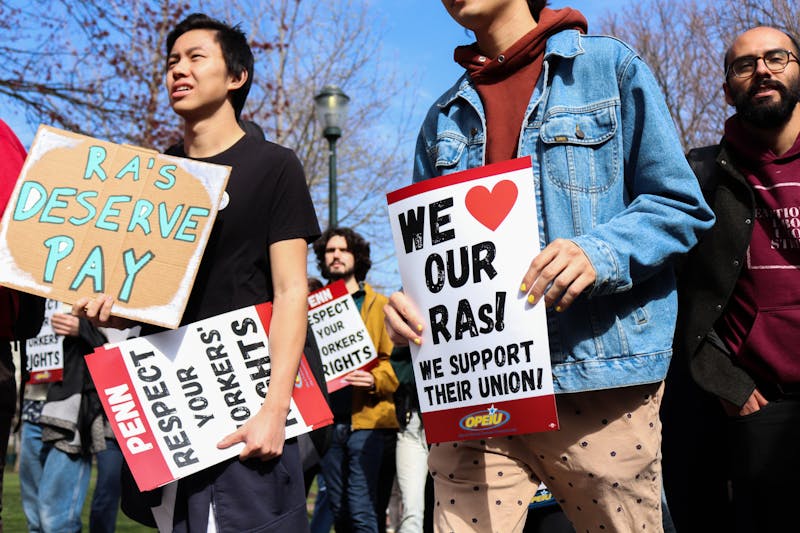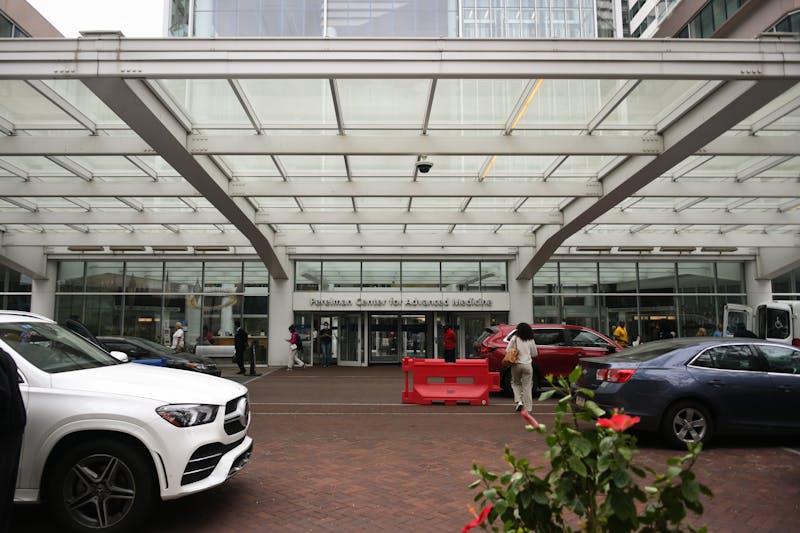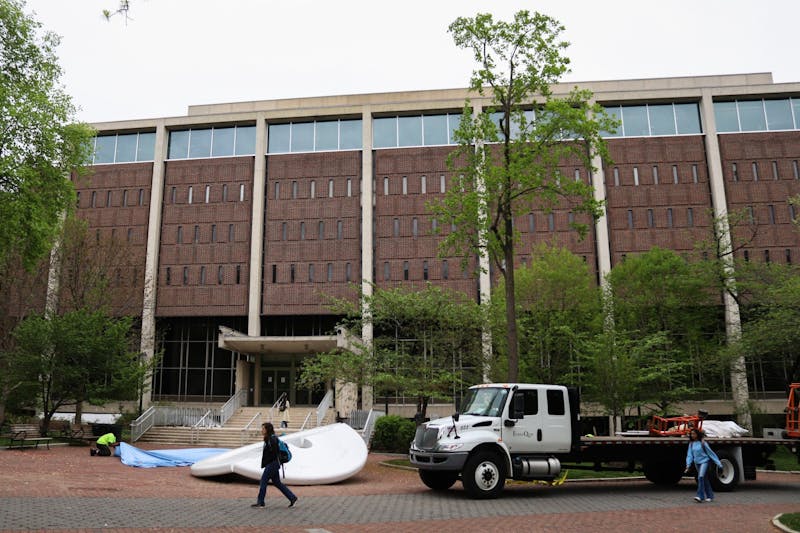
Members of several Penn-affiliated unions are accusing the administration of utilizing union-busting tactics to suppress their efforts amid a historic wave of labor organization on campus.
Over the past few years, many groups of campus workers have started unionization efforts or officially formed unions. In that time, the University has ramped up what several union members have described as anti-union messaging aimed to suppress campus labor organization.
“For many years, the University has had productive relationships with the multiple unions that represent University staff members and expects that it will have similar relationships with the newly formed unions,” a University spokesperson wrote in a statement to The Daily Pennsylvanian. “Our expectation is that both the University and the unions will engage productively and in good faith during collective bargaining and if any issues arise.”
But representatives from several campus unions told the DP that Penn has used scare language, reduced financial aid awards, and made it difficult to schedule bargaining sessions — complicating those groups' efforts to organize and reach beneficial agreements, even as they say they are working to counteract the University's messaging.
Accusations of 'a steady stream of union-busting’
Several union members told the DP that Penn has been using certain language in an effort to suppress an unprecedented wave of campus labor organization.
On Aug. 27 — the first day of classes — 56 residential advisors, all members of United RAs at Penn, received emails from Penn’s financial aid office notifying them that their financial aid awards would be reduced to reflect “the value of the compensation” awarded to these student workers in the union contract, according to a statement from a union representative.
The contract, which was ratified in June and represented one of the first RA union contracts in the country, increased RAs’ meal plans, granted them larger stipends, and increased rights and support for any grievance, arbitration, or disciplinary processes. The agreement also explicitly stated that there were no limits on holding multiple campus jobs — a clause that some graduate residential advisors accused the University of violating in August.
On Aug. 12, the Office and Professional Employees International Union filed an initial unfair labor practice charge with the National Labor Relations Board on behalf of the union, alleging that GRAs had received an email the week before informing them that they were no longer allowed to hold multiple campus jobs. OPEIU also began a petition urging Penn to “stop charging RAs $6000+ to work,” which had nearly 1,400 signatures at the time of publication.
Although the Aug. 12 charge was ultimately withdrawn, a second charge was filed alleging economic threats against union members, 2016 Graduate School of Education graduate and OPEIU organizer Scott Williams told the DP. Following discussions about potential legal action, they filed a third charge on Sept. 11 alleging that Penn “has discriminated against union members in regards to terms and conditions of employment to discourage union membership.”
“We find this to be completely inequitable and unfair and particularly punitive because of unionization,” Williams said. “Penn, in multiple different ways, is trying to penalize our members for unionizing.”
College junior Haydr Dutta told the DP that — in response to the discrepancies over the value of RAs’ meal plans and their impact on financial aid awards — Penn offered the affected RAs an alternative meal plan for no cost. Dutta, along with others, declined — and they said that Penn then offered a $2,200 settlement grant to allow RAs to make their own meal decisions. Dutta told the DP that they accepted the grant, but were still left with a $3,000 bill to pay.
“This feels like union-busting behavior,” they said, adding that — because of the unexpected financial aid reduction — the RAs’ increased stipends do not change much. “Basically, compared to last year, we’re at a loss.”
In addition to alleged contract violations, members of Graduate Employees Together — University of Pennsylvania, which voted to unionize in May after the University unexpectedly postponed their election and formed their first bargaining committee in July, told the DP that Penn has withheld information the group has requested to begin the process of ratifying initial bargaining demands.
“Penn administration responded to the bargaining committee’s request for information … but did not offer the majority of the information we requested,” second-year literacy studies Ph.D. candidate and GET-UP bargaining committee member Clara Abbott wrote in a statement to the DP. She added in an interview that GET-UP is aware that “the Penn administration has stalled on contract negotiations.”
Penn Libraries United, a recently formed group of Penn Libraries staff members, hosted a unionization election in early August. Those results, which were counted on Aug. 21, consisted of 40 “yes” votes, 27 “no” votes, and 17 “provisional ballots” — voters whose eligibility has not yet been determined by Penn. Those 17 ballots will determine the outcome of PLU’s election, which is unclear one month after polls closed.
“We are eager to see this resolved,” social sciences librarian Sam Kirk said.
However, dissatisfaction with Penn’s response to unions has grown. English professor and Communications Secretary for the Penn chapter of the American Association of University Professors David Kazanjian claimed that Penn’s anti-union messaging has included websites with “myths and false information” from the Office of the Provost, as well as work with Cozen O’Connor, a prominent law firm, to suppress union efforts. Many of these websites, posted ahead of union elections, are no longer accessible.
“We expect [Penn] to continue to try to suppress unions on campus,” Kazanjian said, adding that AAUP is in regular communication with Penn unions to offer support.
GET-UP recently released its initial bargaining demands, which “reflect the specific needs of graduate workers at Penn and our vision for a fairer, more just University and workplace,” according to their website. The group hopes to ratify these demands — which include pushes for financial security, expanded healthcare coverage, and fair grievance procedures — this month.
Penn Medicine residents and fellows, who first unionized in May 2023, have described facing difficulties with consistently securing bargaining sessions with Penn.
The group sought an unfair labor practice charge following two collective action events being affected by hospital security — including an Aug. 30 event with 2013 Engineering graduate and State Rep. Rick Krajewski (D-Philadelphia), whose district includes Penn and who has been vocal in his support of unions across the University.
Following these collective actions, bargaining sessions between the Penn Med union and the University resumed on Sept. 17.
An ongoing effort to educate prospective union voters
“As an educational institution, we believe that information and education is vital so that individuals can make informed decisions about union engagement and representation,” the University spokesperson wrote to the DP.
Penn’s unions' leaders, however, told the DP that they are committing to educating prospective voters on unionization efforts. They said that they hope to provide a continuous, accurate flow of information about the importance of unions and how to avoid anti-union messaging from Penn.
AAUP-Penn hosted several faculty conversations in fall 2023 in response to perceived anti-union communications from the Office of the Provost, while PLU provides extensive resources, including a “Mythbusting Union Busting” zine designed to define union busting, and breaks down labor laws that are relevant to campus labor organization.
“We were anticipating some of the anti-union information [put out by Penn],” Middle Eastern studies librarian Heather Hughes told the DP. “A lot of [the resources] are kind of wanting to prepare ourselves and our membership [for that].”
Former digital humanities librarian Cassandra Hradil added that the resources were useful before PLU went public with its unionization efforts.
“We were able to build these relationships of trust with the people that we're hoping to be in a union with,” she said. “And that does have to do with transparency and truth and knowledge.”
Williams, who is also involved with the Coalition of Workers at Penn — which aims to provide a space for mutual support for all Penn workers — told the DP that “there’s a historic change” happening at Penn, and “it’s embodied” by the goals that campus unions have achieved in the past year.
“It’s an exciting moment to be part of union organizing at Penn,” Hughes added.
The Daily Pennsylvanian is an independent, student-run newspaper. Please consider making a donation to support the coverage that shapes the University. Your generosity ensures a future of strong journalism at Penn.
Donate












